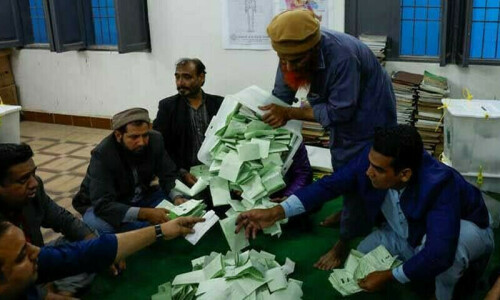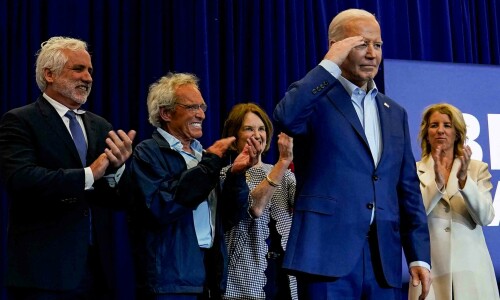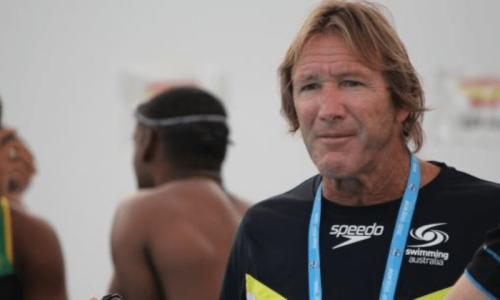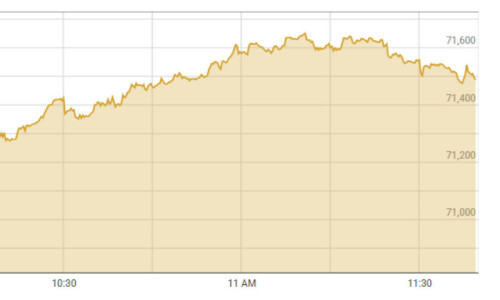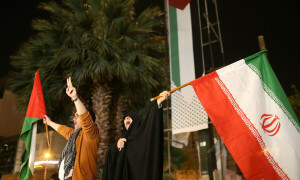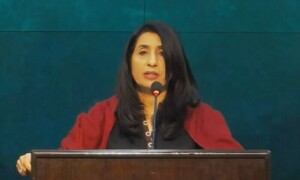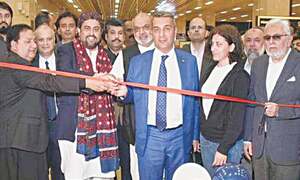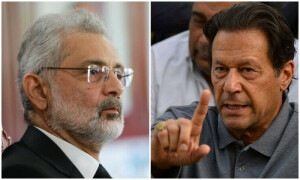THIS port town is touted as the next modern city full of opportunities for developers and residents alike. Yet, at the moment, the residents of Gwadar wish for nothing more than a continuous flow of water.
Officials say that the future “economic hub of Balochistan” will need 12 million gallons of water by 2020, failure to provide which will put at risk the ambitious plans.
All along the coastal highway leading from Gwadar to the Belar dam, 85km in the south-west, empty water cans are placed by the side of the road by residents from nearby and far-off villages to be filled up by private tankers on their way to Gwadar. Near one such line, a man named Din Mohammad is busy getting water from a recently filled can.
He’s putting it into smaller containers tied to his camel. In broken Urdu, he says that this is the only way his family of 10 gets water that is free of cost. There are other such men on the way to Belar, some of them on foot, going to get water.
There has been a severe water crisis in Gwadar district after the only dam providing water, the Akra dam, dried up at the beginning of this year. The $24m rain-fed project was constructed in the early 1990s to provide water to the villages but ended up becoming the sole provider to Gwadar city instead, explains the sub-divisional officer at the Public Health Engineering Department (PHED), Mohammad Shaban.
Sitting in his office, which is one kilometre away from Bakhshi Colony near the arterial road of Gwadar, he says that the Akra dam last received rainfall in 2010. Then the dam dried up in 2012, when not enough rain was recorded. “The meteorological department predicts rainfall in the coming two days,” he says. “It’d be good if it rains well, which would be enough for the Akra dam to provide water for the coming five years. Otherwise, we’ll have to look for alternative ways.”
In the wake of the water shortage and the Akra dam drying up, the Belar dam — a catchment area getting water from the Daramb mountain facing the Iranian border on its west — became a junction for private tankers coming from Gwadar. Mohammad Ali and other owners of 120 water tankers in Belar have set up 15 water pumps on the left bank of the dam.
These tankers make 27 trips a month, barring Fridays, to provide water to the residents of Surbandar, Peshukan, Gwadar and Jiwani. At present, residents in Gwadar pay Rs15,000 to avail a private tanker which helps for a week. Mohammad Surabh, a resident of Bakhshi Colony, says tiredly that he pays Rs15,000 for a tanker, “and then we wait for the electricity so that it can be utilised at home. We face a power shortage of eight hours a day due to the maintenance work around the area.”
The alternative source of water, which according to Shaban is a solution to the city’s persisting water issues, is the Mirani dam which is located 43 kilometres west of Turbat city, a five-hour drive from Gwadar city.
“When the dam was being constructed in 2003, there was a clear statement in the PC-1 of the project that Gwadar city will get 20 million gallons of water from the Mirani dam,” adds Shaban. But in the revised PC-1, after retired General Pervez Musharraf’s government, the clause was removed by the incoming government, he explains. This, though a viable solution, he says, will cause conflict in the coming days as both cities need water.
At present, Gwadar city needs 4.6 million gallons of water; the Akra dam was supplying 2.5 million gallons. So the city was already short of some two million gallons of water, says the director-general of the Gwadar Development Authority (GDA), Dr Sajjad Hussain Baloch.
“We witness a dry spell every two to three years. As a temporary step, the chief secretary of the province has made the desalination plant in Karwat, located in Gwadar, partially functional which is providing 500,000 gallons of water to the city,” he claims, adding that the Balochistan Development Authority (BDA) wants the plant to be fully functional by the end of the month.
However, sources within the PHED say that the plant, which was initiated in 2006, faced delays in its functioning and was “forcibly made functional” after a push from the National Accountability Bureau (NAB) last November.
NAB found that the water pipelines needed to supply water to the city were missing. The source further adds that Karwat is providing 200,000 gallons of water rather than the amount claimed by the GDA DG.
The construction of two other dams — the Sawwar dam undertaken by the provincial government and Shaadi Kaur by the federal government in 2012, both located in and around Pasni, Gwadar district — is yet to be completed, which authorities say is at the root of the problem.
SDO Shaban says: “If these dams had been completed in time, we wouldn’t have had to to rely on other sources of acquiring water. Embezzlement and a lack of funds is another issue which needs to be sorted before the water shortage snowballs into a bigger conflict between the towns.”
Published in Dawn, March 6th, 2016



















